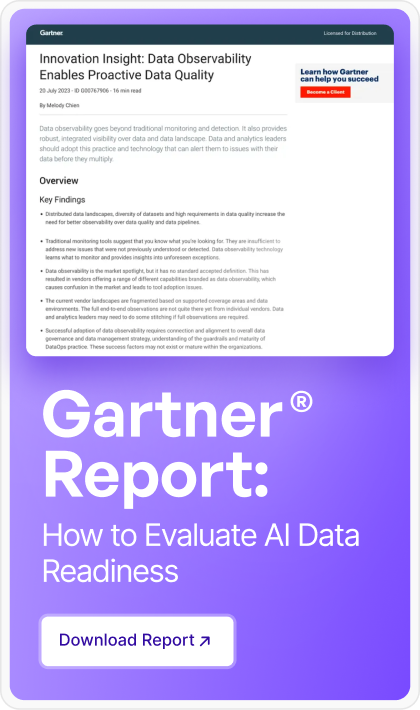Imagine a fast-growing retail company struggling to manage and analyze its vast amounts of sales and customer data. The proprietary reporting software they’ve relied on for years has become an expensive bottleneck, limiting access to advanced features and stifling innovation.
The company's leadership utilizes open-source reporting tools, which not only reduce costs but also provide the flexibility to customize in line with the evolving business and technology landscape.
Open source tools are gaining traction of late. 80% of IT leaders intend to increase their use of enterprise open source software. Organizations are also reevaluating traditional proprietary systems in favor of open-source solutions.
Open-source reporting tools provide premium features without hefty subscriptions, delivering the power of paid tools without cost barriers. They also offer unparalleled flexibility, cost-effectiveness, and innovation.
This article delves into the transformative power of open-source reporting and how it is shaping the future of data-driven insights.
Pillars of Open Source Reporting
Open source reporting refers to the practice of creating and sharing reports using open source tools and technologies. It allows businesses to leverage customizable, cost-effective solutions for generating data-driven insights, without the restrictions of proprietary software.
By utilizing open-source reporting frameworks, companies can access flexibility, transparency, and a collaborative community for continuous improvement and innovation.
Open-source reporting adheres to four key principles that make it a preferred choice for organizations worldwide. The following pillars ensure adaptability, trust, and innovation in reporting practices:
1. Flexibility and customization
Open source reporting tools enable businesses to tailor their reporting frameworks to meet unique needs. Unlike proprietary systems, where customization is often limited or costly, open source solutions allow companies to adapt tools for specific industries, processes, and objectives.
For example, a fintech startup can integrate custom metrics to track unique KPIs, enabling more precise performance evaluations.
2. Transparency
With open-source reporting, the source code is openly accessible, thus fostering trust and collaboration. Teams can audit, modify, and enhance the code to meet their reporting requirements. Transparency also ensures better regulatory compliance by providing a clear view of how data is handled and processed.
3. Community-driven innovation
Open-source tools thrive on the contributions of a global community of developers and users. This results in continuous improvements, regular updates, and rapid bug fixes.
4. Cost-effectiveness
Open-source reporting eliminates licensing fees, making advanced BI capabilities accessible to organizations of all sizes. Companies can allocate saved resources toward scaling operations, training, or enhancing their data infrastructure.
Why Open Source Reporting Matters for Businesses
Open-source reporting offers businesses a cost-effective and flexible alternative to proprietary tools, enabling them to create customized, data-driven insights.
By leveraging open-source solutions, businesses can harness new growth opportunities and enhance operational efficiency.
Open-source reporting impacts businesses in the following three ways:
- Achieving competitive advantage
Open-source reporting allows businesses to tailor reports to their specific needs, providing insights that drive better decision-making. With the ability to swiftly adapt and integrate emerging technologies, companies can stay ahead of competitors and capitalize on market opportunities. - Driving cost efficiency
Proprietary reporting tools often come with steep licensing fees and hidden costs. By adopting open-source reporting, businesses can reduce overheads significantly. According to the Harvard Business School, companies save over $8.8 trillion by using open-source solutions. - Fostering innovation
Open source tools such as Metabase and Apache Superset provide the flexibility to experiment with cutting-edge features. This empowers teams to drive innovation in dashboards and self-service BI, thus unlocking new opportunities for growth.
Popular Open Source Reporting Tools: A Closer Look
The open-source ecosystem offers a variety of tools tailored to diverse reporting needs. Here’s a glimpse into some of the most widely adopted platforms:
1. Metabase
Metabase is a user-friendly tool designed for teams with limited technical expertise. Its drag-and-drop interface allows users to build dashboards effortlessly, making data visualization accessible to everyone.
2. Apache Superset
Known for its robust capabilities, Superset excels at handling large-scale data visualization projects. It offers advanced features such as SQL-based query building and rich charting libraries.
3. Business Intelligence and Reporting Tools (BIRT)
An enterprise-grade solution, BIRT caters to complex reporting needs, providing seamless integration with Java applications and extensive customizability.
4. Grafana
Ideal for real-time data monitoring, Grafana excels in creating interactive dashboards for operational analytics. It is widely used in industries such as IT and healthcare for real-time performance tracking.
Challenges and Considerations in Open Source Reporting
Open-source reporting offers numerous advantages; however, it comes with its own set of challenges. Addressing these hurdles is crucial for successful adoption.
1. Learning curve
Open source tools often require a certain level of technical proficiency. Training team members to utilize these tools can be time-consuming but it is essential for long-term success.
2. Maintenance and security
Unlike proprietary tools with dedicated support, open-source solutions rely on internal expertise for updates and security. Organizations must invest in skilled personnel to manage these aspects effectively.
3. Data privacy compliance
Open source reporting must adhere to strict data protection laws such as GDPR or CCPA. Ensuring compliance requires careful auditing of data handling practices and robust data governance frameworks.
Best Practices for Implementing Open Source Reporting
Implementing open-source reporting need not be a daunting task. The following best practices can ensure a smooth transition and optimal outcome:
- Align tools with business needs
Evaluate your organization’s unique requirements and select tools that address those needs comprehensively. - Leverage community resources
Tap into forums, documentation, and developer networks to resolve issues and stay updated on tool enhancements. - Establish a data governance framework
Ensure your reporting processes adhere to data quality and privacy standards for reliable insights. - Pilot before scaling
Start with a small, controlled implementation to test usability and identify potential roadblocks.
Empower Open Source Reporting with Acceldata
The trajectory of open-source reporting points toward increased adoption and innovation of business intelligence tools. Trends such as AI-driven reporting, real-time data visualization, and predictive analytics are set to redefine the space. Yet, these advancements rely on one critical foundation: high-quality and reliable data.
Without accurate, consistent, and complete data, even the most advanced reporting tools would fail to deliver meaningful insights.
Open-source reporting is more than a technological shift; it is a pathway to more transparent, efficient, and innovative decision-making. By leveraging tools such as Metabase, Superset, and Grafana, businesses can craft compelling dashboards, streamline data visualization, and enable self-service BI, driving actionable insights. However, achieving impactful reporting starts with perfect data.
Acceldata’s Data Observability Platform is a comprehensive solution designed to monitor, manage, and optimize your data ecosystem in real time. It provides end-to-end visibility across data pipelines, ensuring that data remains accurate, consistent, and reliable at every stage.
With advanced capabilities such as anomaly detection, root cause analysis, and proactive alerts, Acceldata helps organizations prevent data quality issues before they impact reporting and analytics. The platform integrates seamlessly with open-source tools, enhancing their functionality while maintaining operational efficiency.
By leveraging Acceldata, businesses can ensure that their data strategy is robust, scalable, and ready to support the most demanding reporting requirements. Book a demo today to explore how Acceldata can transform your data strategy and elevate your reporting capabilities.





.webp)

.webp)







.webp)
.webp)


